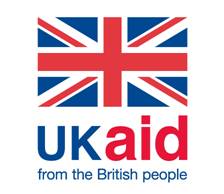A view from the summit
By Rob Henderson, Public Affairs & Advocacy Officer for World Vision UK
In April I attended a meeting in Berlin with representatives from the German government and other NGOs ahead of the G7 in June. There I was struck by how highly regarded the UK government and Department for International Development (DfID) was by my counterparts at other organisations.
I was surprised at first, but while governments come and go, as a country we have consistently remained invested in the world around us, regardless of who is in power. I’m not saying this has always been positive, but I’m pleased to live in a time when by-and-large the consensus is that tackling the root causes of poverty and addressing the needs of children and families caught up in disasters is a good thing.
This generosity has been key for children like 12-year-old Aminata, who was orphaned by Ebola this October. In the space of just a few weeks, Aminata lost her Mum, Dad, and older sister. She now lives with her stepmother, and in the early days after her parents passed, World Vision’s help was key to helping Aminata’s stepmum feed 11 children and keep them safe from further infection. This help was only possible thanks to the generosity of child sponsors and donations from the public to our Ebola appeal.
At the conference in Berlin in April I realised it’s something that I, and a lot of my colleagues, have taken for granted, even when we’re celebrating milestones like the recent guarantee from the government to spend 0.7% of Gross National Income on overseas development. Nowhere has Britain’s generosity and influence in the world been more apparent recently than in West Africa. Countless people have been saved by the DfID funded safe burials programme, led by World Vision Sierra Leone. It’s an amazing programme that received the Humanitarian Award at this year’s Bond International Development Awards, a cross-NGO organisation made up of 440 charities working in international development.
My colleague Grace Kargbo, who’s the Ebola Response Manager in the Bo District of Sierra Leone, came over for the awards, and I had the pleasure of hosting Grace during her stay. I was struck by her stories of Ebola and its terrible legacy in Sierra Leone. In its wake the disease has left children like Aminata orphaned, people isolated and suspicious and an already fragile health system broken.
However, when helping Grace prepare her acceptance speech, I noticed just how adamant she was that our government had played a key role in tackling the spread of the virus. The UK walked with the people of Sierra Leone from the start of the crisis, allowing people to bury their dead with dignity, set up labs to quickly diagnose Ebola, raise awareness about how the disease is spread, build treatment centres, and train frontline health workers. Amazingly, none of our sponsored children have lost their lives to Ebola. The number of cases in Sierra Leone has now fallen from a peak of over 500 a week in November to just eight in May.
However, even after Ebola claims its last victim, the fight is not over. The effects of the crisis will live on as children struggle to cope without their parents in a world so different and so much more fragile than that in which they found themselves a year ago. We must all be there to guide them and help them avoid becoming victims twice over – and the next opportunity to protect them comes in Bavaria this weekend.
The Prime Minister and the UK delegation at the G7 Summit must fight for vulnerable children, especially those living in places like Sierra Leone, who have not benefitted from the progresses made in the past fifteen years. The commitments made at previous G7 summits made huge steps forward in halving the amount of children dying from preventable deaths such as diarrhoea, malaria and pneumonia. Now they have the opportunity to make a great change to the lives of the children Grace works with in Sierra Leone.
